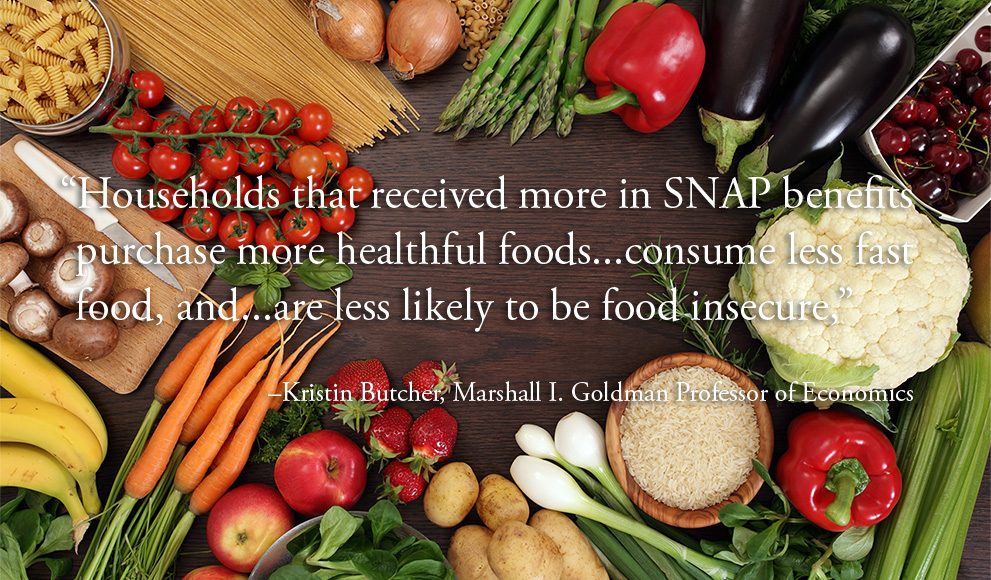New Research from Kristin Butcher, Professor of Economics, Could Change the Conversation Over So-Called 'Food Stamps'

Research from Kristin Butcher '86, Marshall I. Goldman Professor of Economics and Department Chair, could help shed new light on SNAP—the Supplemental Nutrition Assistance Program (formerly the Federal Food Stamp Program). Media like the Huffington Post and others have reported on the study, conducted under the Center on Budget and Policy Priorities Policy Futures Project. Butcher's co-author is Patricia M. Anderson, from Dartmouth College.
The research examined "The Relationships Among SNAP Benefits, Grocery Spending, Diet Quality, and the Adequacy of Low-Income Families' Resources," the report's title. "Households that received more in SNAP benefits purchase more healthful foods, they consume less fast food, and they are less likely to be food insecure," Butcher explained.
Butcher has done extensive research on food insecurity and has seen how the media report on the topic. "Often stories in the news about SNAP recipients discuss what they are purchasing, and usually those stories take one of two angles: SNAP recipients are purchasing 'junk food' or SNAP recipients are purchasing 'luxury foods' like lobster," she explained. "Both of these extremes are portrayed as suspect uses of these benefits." She added, "These findings show that low-income people are a lot like the rest of us: when they have more money, they buy more of all things, including food." What the new research shows, however, is "that this includes more nutritious foods."
The findings fill in a missing puzzle piece that "policy makers should find useful," said Butcher. She explained, "This work, along with some of my previous work, finds that families with teenagers are more likely to be food insecure. Yet, SNAP benefits do not take into account the age of the children in the household, even though we know that nutritional needs change as children grow."
Butcher's research can be useful in her teaching, too. "When I teach 'Econ 101,' I love it when I get to the point in the semester where we can use the tools of economics to analyze the impact of programs like SNAP on choices that consumers make. While this research is not a direct test of those theoretical models, the empirical results fit in well with what the theory says should happen when you give consumers SNAP benefits," she said.
Butcher has been widely cited by the media. She’s appeared on the PBS Newshour, and her work has been reported on by Time, Reuters, U.S News & World Report and others.
